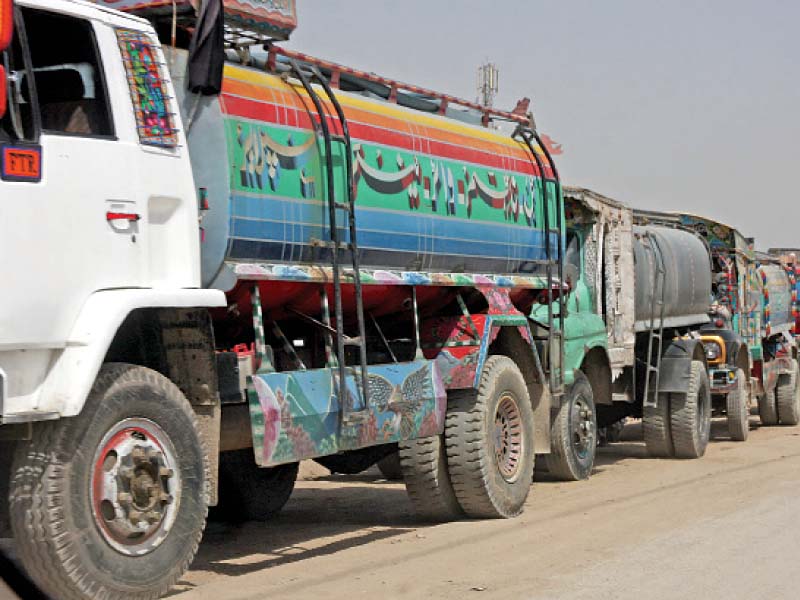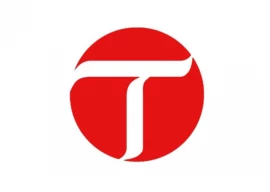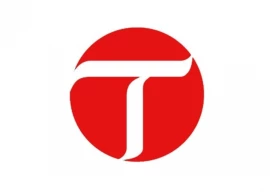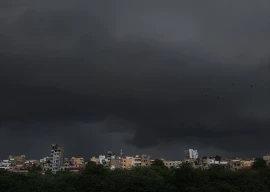
With the K-Electric (K-E) and Karachi Water and Sewerage Board (KWSB) engaged in a tug of war over non-payment of dues and disruptions in power supply at the latter's pumping stations, over 22 million citizens of the city are left to brave the growing shortage of water for the next few days.
On Tuesday, the power utility had announced it will carry out load-shedding at the five major pumping stations of the KWSB from 8pm to 12pm every day. This is likely to further strain the already diminishing supply of water to most areas of the city.
Karachi's water supply branches out from five major pumping stations: Gharo, Pipri, Hub, North-East Karachi and Dhabeji. The power cuts at these pumping stations have already caused a water shortage in several areas, such as Gulistan-e-Jauhar, Gulshan-e-Iqbal, Lyari, Surjani Town, New Karachi, Defence Housing Authority and Clifton.
On Wednesday, long queues were observed at the filling stations in these areas as the citizens helplessly tried to collect as much water as they could, sensing tough times ahead. The water tanker suppliers have taken the opportunity to increase their rates.
This has prompted the local bodies minister to issue a warning to K-E against the power cuts at the pumping stations. "Load-shedding at pumping stations is contempt of court and against the law. The government reserves the right to take action against K-E," he said.
KWSB's reasoning
KWSB managing director Hashim Raza Zaidi told The Express Tribune that the power utility's decision to carry out load-shedding at the pumping stations could well be the last straw in the looming crisis.
"The city is now facing a shortage of over 137 million gallons of water per day (MGD), in addition to the existing shortage of 560 MGD," he explained. Zaidi lamented that the four hours of load-shedding would aggravate the already existing water crisis. "I don't know why they are taking such decisions that will have an adverse effect on the citizens of Karachi," he said.
Zaidi added that the sudden breakdown at the Dhabeji pumping station on Tuesday night had even damaged a 72-inch diameter pipeline.
Crisis worst in DHA, Clifton
Areas falling under the Defence Housing Authority and Cantonment Board Clifton will be affected the most by the current crisis, said Zaidi, as the entire supply to these areas depended on the Dhabeji pumping station. He added that if the K-E stopped the power cuts at all the pumping stations, they would all resume pumping water immediately, except the Dhabeji station, where they would need to repair the damaged pipeline. The repairs would take between two to three days.
K-E speaks out
The K-E spokesperson admitted they have started load-shedding at the pumping stations. "The KWSB owes Rs36 billion to K-E," he said. "Why did they not give us the Rs5 billion that were approved for K-E in the last budget?"
The spokesperson claimed that they had exempted the water board from load-shedding for a long time but that did not resolve the water crisis. "If the water shortage has increased, the Sindh government and the KWSB are responsible," he said, suggesting the water board to clear the power utility's dues if they wanted uninterrupted power supply. The KWSB chairperson disputed, however, these claims. He said the water board had cleared all its electricity dues till April 2015. "The other dues are for the period prior to the privatisation of the power utility and the federal government is supposed to clear them."
No load-shedding was carried out on Wednesday evening, said the K-E spokesperson, adding that there will be another meeting today in which they will figure out their future plan of action.
Demand and supply: The opportunists strike
As news of the K-Electric’s decision and its ramification went viral on Tuesday night, the water tanker suppliers increased their rates, despite the orders of the local bodies minster.
The water board has no system to check the retail price of water tankers that fill up the water from its hydrants. “If you want to procure water at government rates, you must reach the hydrant by 7am as only 70 tankers are able to fill water from these hydrants per day,” said Mehran, a resident of Buffer Zone. “Ultimately, you have to approach the private water tanker suppliers, who roam within the jurisdiction of the government-run hydrants freely.” These private suppliers set the prices daily by using the demand and supply method, explained Mehran.
Local bodies minister Sharjeel Memon is well-aware of these exorbitant prices. He has asked residents to register complaints against such suppliers at: 021
Published in The Express Tribune, May 7th, 2015.







1722244248-0/tlprrt-(1)1722244248-0-270x192.webp)








COMMENTS
Comments are moderated and generally will be posted if they are on-topic and not abusive.
For more information, please see our Comments FAQ